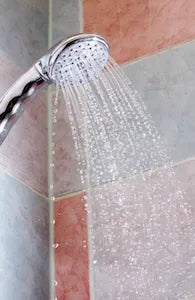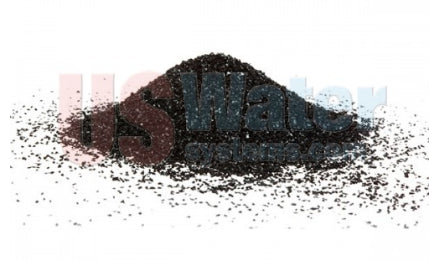SIGN UP FOR OUR NEWSLETTER
Receive our latest updates about our products & promotions.
 If you get your water from the city or other municipal water treatment plant, then it's probably been treated with chlorine. Chlorine is a very effective and affordable way to disinfect water, killing a wide range of bacteria, viruses, and other pathogens that could make you sick. Most municipal water systems go a great job of making sure that the water they provide to the public is clean and healthy, but once that water gets to your home, the chlorine has done its job. Any remaining chlorine or disinfection byproducts left behind can be swallowed, inhaled, or absorbed through the skin and cause a number of side effects.
If you get your water from the city or other municipal water treatment plant, then it's probably been treated with chlorine. Chlorine is a very effective and affordable way to disinfect water, killing a wide range of bacteria, viruses, and other pathogens that could make you sick. Most municipal water systems go a great job of making sure that the water they provide to the public is clean and healthy, but once that water gets to your home, the chlorine has done its job. Any remaining chlorine or disinfection byproducts left behind can be swallowed, inhaled, or absorbed through the skin and cause a number of side effects.
As a pure chemical, chlorine is extremely dangerous to human beings. As a gas, it attacks the eyes, skin, and lungs. When limited amounts are added to water, it works very effectively to kill bacteria and other dangerous pathogens. At the limited levels permitted by the EPA, chlorine in drinking water is not known to cause any immediate health concerns.
Chlorinated water can cause a number of side effects, however, including dry, itchy skin and hair. Swimmers who are exposed to more heavily chlorinate pool water may experience red, burning eyes and respiratory issues. Chlorine also gives water a distinct taste and odor that many people find objectionable.
Read more about the problems with chlorine in your water.
If you get your water from the city and are not filtering it in any way, then it's very likely that there is chlorine in your shower water. After chlorine is added to the water at the treatment plant, it's not removed – the fact that the chlorine stays active means that it continues to disinfect the water as it travels through pipes that could have bacteria or other germs in them. Once that water gets to your home, however, it's best to get rid of the chlorine.
Why is chlorine in shower water a concern? Because this chemical can be inhaled and absorbed through your skin. When you shower in hot water, you inhale the steam – water vapor that contains chlorine, disinfection byproducts like trihalomethanes, and many other water pollutants. Your digestive system is designed to handle possible toxins in a way that your lungs aren't, which means that even low level exposure to these chemicals through inhalation may have a much more significant effect than drinking them in water. Studies suggest that several types of trihalomethanes may cause cancer, and there are indications that cancer rates are higher for people who drink (and bathe in) chlorinated water.

If you have chlorinated water – and most people do – then you need a granulated activated carbon (GAC) filter. While drinking water filters will remove chlorine, disinfection byproducts, and many other chemicals from the water that you drink, it does nothing if there is chlorine in your shower water. Instead, you need a whole house water filter or a shower water filter that uses activated carbon. These filters are both affordable and effective, and a whole house filter will provide every faucet in your home with chlorine-free water.
Receive our latest updates about our products & promotions.
Thanks for subscribing!
This email has been registered!